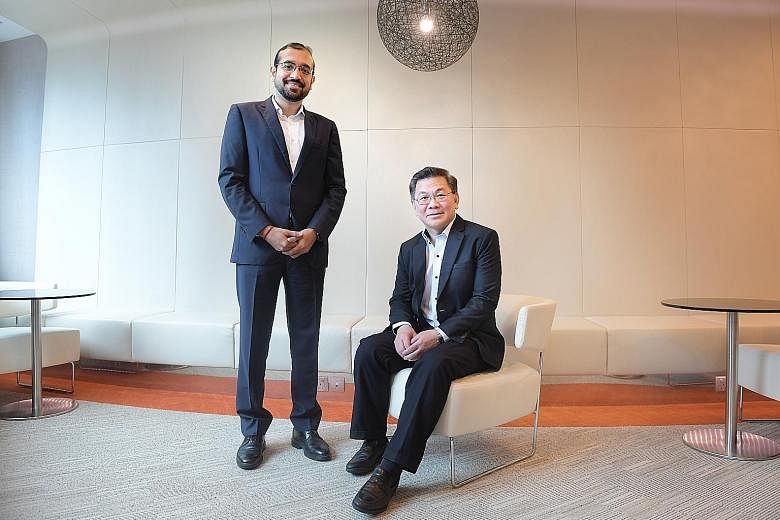The Budget next month should look at ways to help businesses for the long haul, given the challenges of digitalisation and sustainability, said audit firm KPMG yesterday.
Its wish list called for measures such as tax subsidies and rebates to give firms incentives to innovate and become greener.
KPMG Singapore head of tax Tay Hong Beng told The Straits Times: "The economy is slowing down due to global uncertainty and many Singapore businesses are having difficulty defending their market position due to tech disruption as well.
"They run the risk of being obsolete. Digital transformation is not happening enough in Singapore and firms need to have a long-term perspective, rather than just thinking of how to tide over the next six months."
He added that government grants have been supportive, but businesses have to bite the bullet on tech transformation or face the same issues year after year.
The KPMG report proposed that the range of schemes for business transformation can be made into a comprehensive package, called "3+5 Protect & Grow Scheme", that caters to firms at different stages of development.
For instance, it could support companies in improving productivity in the first three years by giving 300 per cent capital allowances for investments in automation and 300 per cent tax deduction for training.
The next five years could allow a 300 per cent tax deduction for research and development and expenditure related to internationalisation and licensing intellectual property.
The acceptance of cloud-based solutions by companies could also be sped up through grants of up to 50 per cent of qualifying costs covering the deployment and implementation of such technology, the report added.
Mr Tay said: "It is about getting businesses to plan long term. Many do not have the resources or know-how to plan ahead.
"Singapore can become the transformation capital of Asia with the experience and resources because of what businesses have gone through. We can export our services."
KPMG Singapore deputy head of tax Ajay Kumar Sanganeria noted that fintech and financial services firms are leading adopters of technology, whereas other sectors like manufacturing could do better.
He said: "Enterprises do have to invest on their own even with grants. They have to be profitable, find the opportunities to make money and reap the benefits."
Granting tax relief and rebates as incentives was also one of KPMG's recommendations.
Mr Tay maintained that they will pay off in the long term.
He said: "The Government had put in money in the early years and we see the fruit now. In this age of disruption, the Government has to put in again for the years ahead and it will come back when Singapore enterprises are more profitable."
KPMG also wants more to be done to push technology adoption, such as exploring 5G applications for housing estates. The Government could set up a 5G technology and innovation fund to catalyse innovation and pilot such projects.
Sustainability is also a key theme in the KPMG report, especially in making buildings greener.
Its recommendations include tax deductions for costs related to the development of sustainability strategies, a commercial building allowance for owners who modify their properties to make them greener, and reduced tax on property rental income for landlords of green buildings.
The report also suggested having concessionary tax rates for sustainability bonds and loans, and grants to co-fund innovations that use data for smart solutions that can address urban density issues.
Singapore can become a greener city through measures such as making sustainability a requirement for real estate projects, including considering the environmental and social impact in awarding land tenders.
Mr Sanganeria said: "Singapore is a concrete jungle, so there could be more ways in supporting developers and financiers to go green. It is about putting in ways to fund sustainable initiatives."


